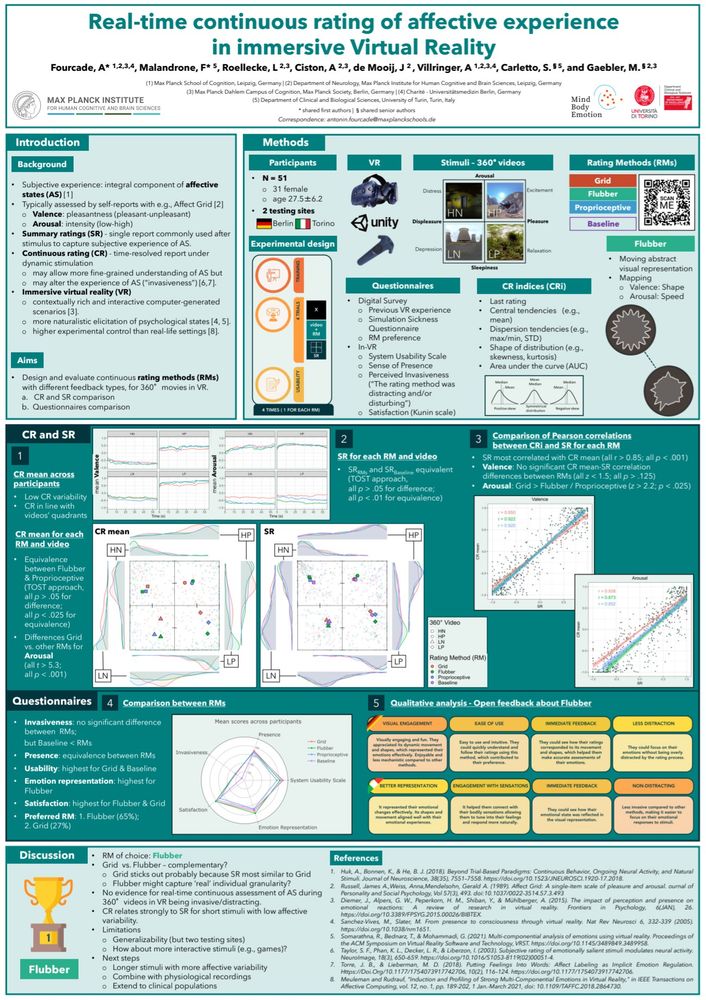
Work of +20 wonderful collaborators! ✨
📑 Documentation: www.bbsig.de

Work of +20 wonderful collaborators! ✨
📑 Documentation: www.bbsig.de
#OpenScience
#OpenScience
@fra-malandrone.bsky.social
@lucyroe.bsky.social
A. Ciston
@thefirstfloor.bsky.social
A. Villringer
S. Carletto
@michaelgaebler.com
#neuroskyence #vr #emotion #affect #selfreports
@fra-malandrone.bsky.social
@lucyroe.bsky.social
A. Ciston
@thefirstfloor.bsky.social
A. Villringer
S. Carletto
@michaelgaebler.com
#neuroskyence #vr #emotion #affect #selfreports
🌟Stay tuned for the full paper & we welcome feedback & discussions! 💭
🌟Stay tuned for the full paper & we welcome feedback & discussions! 💭
Both Grid & Flubber ➡️ high user experience 😃 & low interference with the affective experience itself
Both Grid & Flubber ➡️ high user experience 😃 & low interference with the affective experience itself
🛠️ Unity prefab: github.com/afourcade/Af...
🛠️ Unity prefab: github.com/afourcade/Af...
P.361 (Session 1)
@toninfrc.bsky.social
In collaboration with Torino University, we developed a fun and intuitive new tool to record moment-by-moment feelings!

P.361 (Session 1)
@toninfrc.bsky.social
In collaboration with Torino University, we developed a fun and intuitive new tool to record moment-by-moment feelings!
(Illustration: DALL-E3)
(Illustration: DALL-E3)


